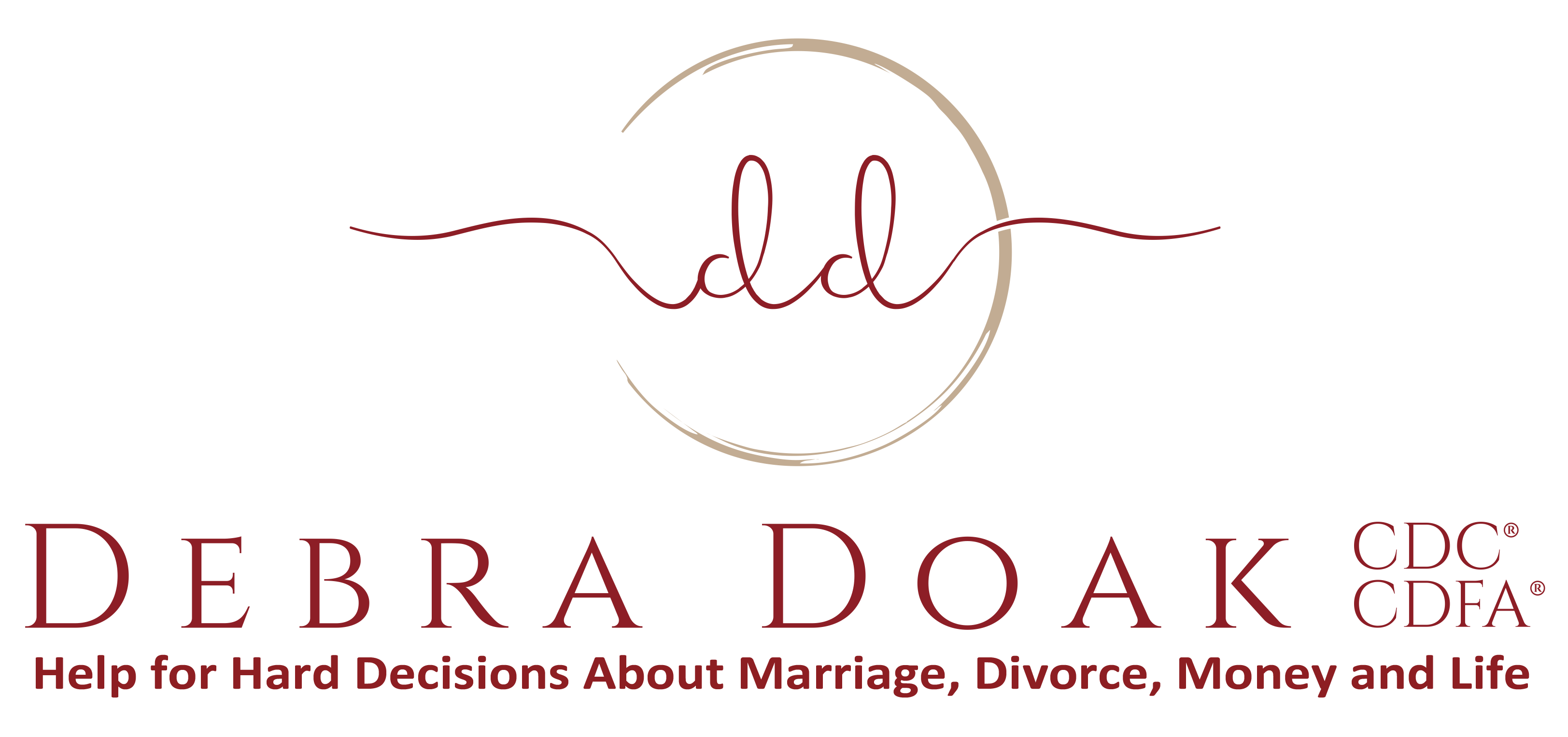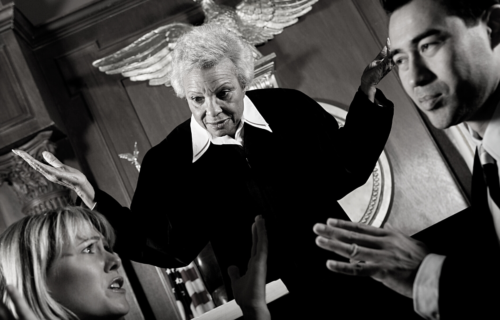
If He Has Chin Hair and Chest Hair, He Can Learn to Be A Better Partner
He Can. But What if He Won’t?
I remember I used to look at my ex and think he looked like a grown man. He had chin hair and chest hair, a deep voice and big muscles, and yet…I often found myself wondering why he wasn’t able to respond to my needs to be a better partner.
He had a good paying job, could build things and fix things, stayed out of trouble, and paid the bills on time. From the outside he seemed to be “adulting” just fine. But when it came to the inter-personal side of things, well…that was a different matter.
Are you in relationship with an adult man and yet you find yourself asking why he can’t…
- Remember your birthday or anniversary?
- Have hard conversations?
- Be direct instead of passive-aggressive?
- Identify and explain his own feelings?
- Show empathy for the hurt he’s caused?
- Find his own therapist/recovery program?
- Stop lying and blameshifting?
- Validate your feelings?
- Give up porn, alcohol, other women or gambling?
- Tell the whole story?
- Be intimate without being sexual?
Now that I know better, I understand there are only 2 answers to these never-ending WHY questions:
- He doesn’t want to
- He doesn’t have the skills
Adult men with chin hair and chest hair who are competent in all other areas of their lives, but don’t show up for their intimate partners either can and won’t or can’t and won’t get help.
He Doesn’t Want To = He Can and Won’t
He Doesn’t Have the Skills = He Can’t and Won’t Get Help
“Won’t” is the common denominator here for not doing the work. And girlfriends, that is not within your control. The great news is that you do have control over the ability to stay grounded in reality, to speak truth, to call BS when you see or hear it, and to make choices based on what he does or doesn’t do.
Let’s take a look at some reasons why he “won’t” and how you “can”. After all, you’re the one who gets to decide what you want your life to look like. And you can begin to focus on keeping yourself safe, sane, and healthy while applying the remedies right now.
#1: He Doesn’t Want To
I bet you didn’t want to hear this answer. But it’s the God’s honest truth. Maybe he is fully capable of giving you what you need, but he’s choosing not to.
What could possibly be behind this “I don’t want to” position?
Often, by way of the key male influences in their lives, boys and young men hear a ton of messages that dehumanize and sexualize females. This creates a deeply ingrained belief system of entitlement, power, control, manipulation, lies or other disordered thought patterns about women. If this is the case, there is no amount of good you can do or change you can make that will get him to see you as an equal worthy of respect.
Or it could be that he has no incentive – that there is no consequence for him regardless of how he behaves. Are the forgetful or forgiving type that offers chance after chance? Have you been so shut down that you no longer even speak up for what you deserve?
In his book Why Does He Do That, Lundy Bancroft says:
“An abuser doesn’t change because he feels guilty or gets sober or finds God. He doesn’t change after seeing the fear in his children’s eyes or feeling them drift away from him. It doesn’t suddenly dawn on him that his partner deserves better treatment. Because of his self-focus, combined with the many rewards he gets from controlling you, an abuser changes only when he has to, so the most important element in creating a context for change in an abuser is placing him in a situation where he has no other choice. Otherwise, it is highly unlikely that he will ever change his behavior.”
If the term “abusive” makes you feel squeamish, then choose another word like controlling, domineering, disordered, etc… The label doesn’t matter. What matters is if your partner ignores you, treats you with disrespect or contempt, tries to intimidate you physically or financially, or coerces you sexually, then they are abusive. To learn more about what behaviors are considered abusive, visit the information page for the National Domestic Violence Hotline.
Better Partner Remedy #1: Boundaries
Have you ever heard the saying “You teach people how to treat you?” That’s the basis of boundaries. Adults have the freedom to make their own choices in life – your partner can choose to cheat, lie, yell, and steal. You, however, also have the freedom to choose how you respond.
An effective boundary is something you do or you put in place to keep yourself protected. It is not reliant on someone else to do the right thing or comply with your request. With an effective boundary, you decide what will make you feel protected and you take action. Putting your safety in the hands of an addict, abuser, or toxic person by asking them to respect you can be a recipe for disappointment. Read more about effective boundaries HERE.
If your partner CAN but WON’T, then it’s up to you to decide what you WILL do. This could range from ending the conversation all the way to consulting a divorce attorney. I don’t know what feels right to you at this point, but taking back your power will feel good. According to Bancroft, an abuser only changes when he has to and not before. Get support if setting boundaries is a new skill for you. Trust me, it’s liberating once you master it.
If you fear for your safety, then please speak with an advocate at www.thehotline.org or call 1-800-799-SAFE (7233) to create a plan before implementing boundaries. Never compromise your safety.
#2: He Doesn’t Have the Skills
We don’t all launch into adulthood with a full toolbox of relationship skills. Maybe dysfunction, addiction, or inequality were modeled for us growing up. Many of our parents didn’t teach us the stuff that true intimacy requires. So we fumble and falter until we gather what we need or we seek help so we can learn. That’s what adults do.
I’m going to bet that if your partner wants to fix the leaky kitchen faucet or build an outdoor fire pit but he doesn’t know how, he will call a buddy or watch YouTube videos until he learns what he needs to successfully complete the job. Or he’ll do hours of research to choose just the right hunting spot or fantasy football team. If he wants to learn something, he will.
And yet, he isn’t seeking help to learn the skills necessary to repair your relationship. Why is that?
First, let’s refer back to answer #1 – he doesn’t want to. But now he may not want to get help because he is accustomed to you doing all the work. If you’ve historically done all the emotional labor in the relationship, he may be relying on you to continue it.
In the world of psychology, they call this learned helplessness and it happens when we continue to do for someone who is capable for doing for themselves. When you lower your expectations of him and fill in the gaps, you enable your partner to maintain their irresponsible, addictive, or underachieving behavior.
The remedy for this is raising the bar. If your partner can get to work on time, schedule meetings, and run a project…he can find a therapist and make an appointment. Really, he can. He can also learn to identify his feelings, express emotion, tell the truth, and stop being abusive. Unless, of course, see #1.
Now here’s the rub…when you stop doing for him, things may not get done. Rather than nag, cajole, argue, cry or get angry, what if you could simply stand back and observe this lack of action as laboratory evidence of his intentions.
Maya Angelou reminds us why it’s so important to stop fantasizing about who we wish people were and let their actions reveal the truth:
“When someone shows you who they are, believe them the first time. People know themselves much better than you do. That’s why it’s important to stop expecting them to be something other than who they are.”
Better Partner Remedy #2: The Weekly Check-In
I work with clients to identify and communicate to their partners the changes they need to see in the relationship. This is a prescribed process where you stay rooted in your power, speak truth, observe patterns over time, and provide feedback to your partner.
Like a scientist conducting an experiment, you are simply noting and reporting, allowing your partner to show you who they are. As you continue to fill your lab notebook with data, you will quickly learn whether your partner is trying to make changes or not.
The weekly check-in serves two purposes. First, it holds you accountable to staying in reality. He keeps saying he wants to change, he’s trying to change, but are you actually seeing anything different on a regular basis? This process will eliminate any amnesia you may be having about how his words and actions line up. Second, it provides regular and indisputable feedback to your partner. They can see in black and white that they are making promises and not keeping them.
The Bottom Line
Take good look at your partner. Go do it right now. I’ll wait…
Does he have chin hair and chest hair? Is he a fully grown adult man? Then decide what you will and won’t tolerate, communicate it clearly, raise your expectations, and establish consequences if he fails to step up.
I watch too many women waste years and even decades hoping, pleading, and begging when their partners are simply choosing not to do the work or get the help they need.
Remember, if he can plan an entire golf trip, he can find a therapist. If he can learn to fix the dishwasher, he can learn to stop gaslighting and being defensive.
If you’re frustrated with a partner who isn’t doing his share of the relationship work, please schedule a complimentary consult call. Let’s create a plan to tighten up your boundaries or develop a custom weekly check-in process.
Because whether he can and won’t or can’t and won’t get help…he has chin hair and chest hair. And that means he is capable of doing it if he wants to.
Wishing you strength and wisdom,




